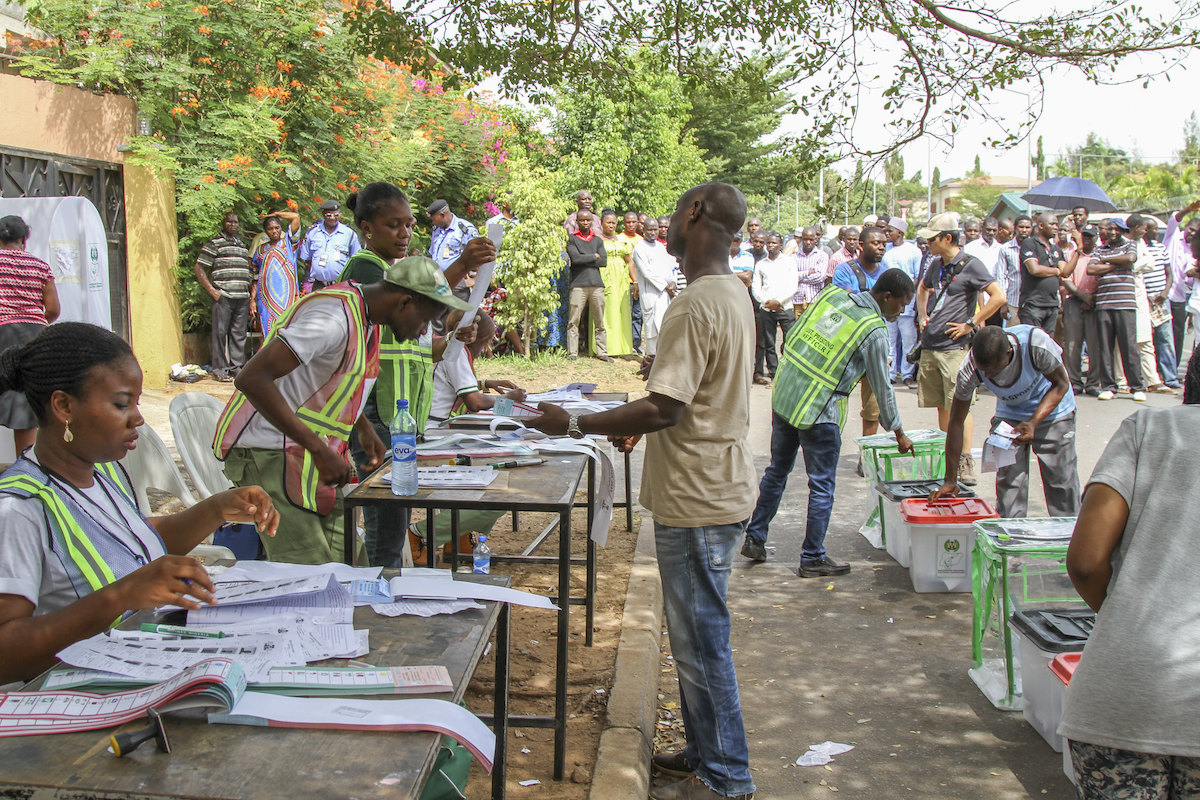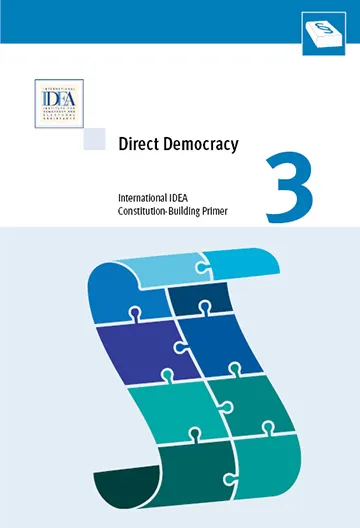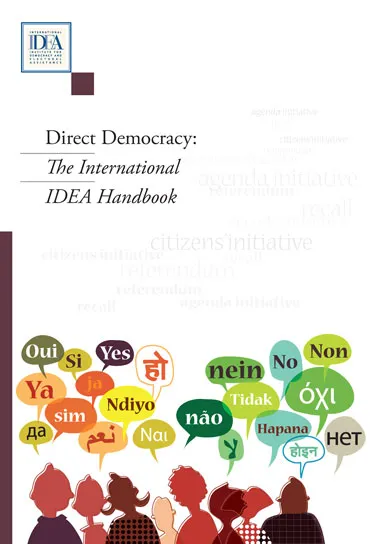The database was created by International IDEA under the direction of in-house researchers who studied the legislative documents providing for direct democracy instruments. The community is encouraged to use the database and help us to improve existing entries to keep the database up-to-date.
Direct Democracy Database
Export dataSelect the criteria below to start your search
Want to compare multiple countries, regions or entities at the same time? Please use the advanced search tool.
Advanced searchAbout this database
Democracy is about involvement of the people in the functioning of their government. A wide range of democratic practices exist in order to engage citizens in making political and institutional decisions, while direct democracy instruments allow citizens to formally engage in such democratic decision making.
There are four mechanisms of direct democracy designed to give the electorate increased opportunities to involve themselves in the running of their governments – referendums, citizens’ initiatives, agenda initiatives and recalls. International IDEA’s Direct Democracy Database provides global comparative data about how those four mechanisms of direct democracy are organized in 197 countries across the globe.
The Database provides comparative data as divided into the following five parts:
- General part
contains general data about the existence of specific types of direct democracy instruments, and their legal basis. - Referendum part
presents specific data about referendum instruments. - Initiative part
presents specific data about citizens’ and agenda initiative instruments. - Recall part
covers recall instrument in specific detail. - Signature collection part
describes how collections are organized for all types of direct democracy instruments that require citizens’ signatures.
Methodology
The initial global research on direct democracy was conducted for the Direct Democracy: The International IDEA Handbook published by International IDEA in 2008. Many organizations and individuals were involved in this research, which was one of the major global studies of direct democracy. The data gathered for the Handbook were later transferred to the Direct Democracy Database.
The primary source used for the research was the constitution. However, in most cases, additional legal documents, such as the electoral laws, specific referendum laws and other relevant legislative documents were also included when it was evident that they stipulated direct democracy procedures. The legal sources used for each data point and relevant quotes have been provided in the online database, together with links leading to texts of the original documents available online.
The legal provisions for direct democracy instruments are complex in some countries, which posed a challenge when classifying the data in the database. Nevertheless, the researchers engaged in the study tried to be consistent in their interpretation of the law. When the laws are not clear in certain provisions, the relevant explanations have been provided in the comments sections.
International IDEA conducts regular desk research to update the Direct Democracy Database. Updates are done by reviewing legal reforms that affect the instruments and procedures of direct democracy. In addition, we invite researchers and practitioners working in the area of democracy to contribute to the curation of the database. If users note that the database has missing, incomplete, incorrect data and/or sources they can use the online form in the “Submit feedback” section. We will review the submission as soon as possible and update the database if the suggested data revision is accurate.
Frequently asked questions
Submit feedback
Submit questions or comments about the Data or Tool
How did you find out about this? What do you like about it? What did you expect but did not find in using the Data or Tool?
To see how we handle your personal data, please read our Privacy Policy.





